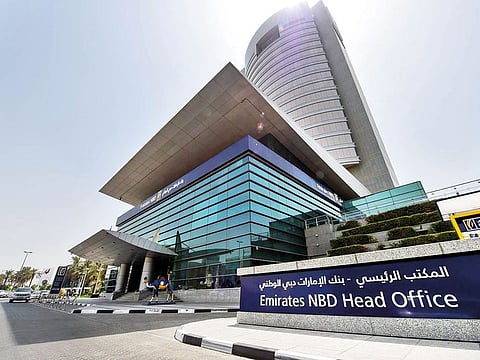UAE banks to report robust results for full year 2021
Improved efficiency, lower provisions and higher margins to reflect in profits

Dubai: UAE banks are expected to report robust results for full year 2021 supported by improved economic conditions, rising operating incomes, better operational efficiencies and a modest recovery in interest margins.
Top UAE banks had delivered consistent improvement in asset quality and profitability in the first three quarters of 2021 supported by steady recovery in the local economy.
Declining costs, improving economy
Data shows, at the end of the third quarter, cost to income (C/I ratio) was at the lowest since 2018 with operating incomes far outpacing costs.
While the focus on reining in operating costs through optimization of branch network, rationalistaion of workforce, operating efficiencies gained from recent mergers and significant adoption of digitialisation have seen big cost savings for banks.
According to the Central Bank of UAE’s (CBUAE’s) assessment of economic activity and growth in the third quarter, the non-oil sector continued its upward trend in Q3 2021, as a result of the pick-up in local and global demand, while the country continued to be a leader in containing the spread of the coronavirus.
Latest Purchaning Manager’s Index (PMI) data shows the UAE economy posted rapid growth in the non-oil private sector economic activity in December with output growth running at a marked pace throughout the fourth quarter amid the start of the Expo 2020 and an easing of travel restrictions.
“It is expected that the economic boost from Expo 2020, continued economic recovery and digital transformation will continue to drive the UAE banking sector growth,” said by Asad Ahmed, Managing Director and Head of Middle East Financial Services, Alvarez & Marsal (A&M).
Aggregate data for the third quarter of 2021 showed total bank deposits increased on both yearly and quarterly basis. However, gross credit contracted on a yearly basis, but the pace of decrease eased with a moderate growth during the quarter.
According to CBUAE, overall, the financial soundness indicators of banks remained robust during this period, on the back of the gradual recovery of the economy.
Profits and asset quality
While key profitability martrixes of banls have been improving, a steady decline in provisions have seen overall cost of risk declining in the first three quarters of the year.
Analysts expect broad trends to continue with improved operating income supported by higher interest income and non-interest income to drive profits.
Despite the low interest environment squeezing overall margins, from the second quarter of last year, banks have been reporting a modest, yet steady improvement in margins. In the third quarter, net interest margin (NIM) increased by about10 bps, quarter on quarter to 2.15 per cent with higher yields on loans (+24bps QoQ).
While anemic loan growth challenged overall interest income, the pick-up in economic activity saw the aggregate interest income increasing by 6.1 per cent in the third quarter, primarily driven by an increase in yields to 5.3 per cent.
Going by the trend in the first three quarters, the overall of asset quality of banks are expected to remain stable in the fourth quarter and the full year. The aggregate non-performing loans ratio has remained flat around 6 per cent at the close of the first nine months of the year.
With the continued support from the Central Bank of UAE and prudent provisioning done by banks since the early days of COVID-19 crisis, a spike in NPL ratio in Q4 and the year as whole is seen unlikely.
GCC banks on recovery path: S&P
Dubai: Banks are set to benefit from a regional economic recovery this year amid higher oil prices, still supportive government spending, and normalizing non-oil activity, S&P Global Ratings said today in a new report. “We expect banks’ asset quality indicators to deteriorate only slightly as regulatory forbearance measures have helped the corporate sector to deal with the negative effects of the pandemic,” said S&P Global Ratings credit analyst Mohamed Damak. In our view, the nonperforming loan ratio will rise in the next 12-24 months without exceeding 5 per cent, compared with 3.7 per cent at Sept 30, 2021. The rating agency expects, GCC banks should benefit from policy rate hikes in 2022 by the US Federal Reserve, which will prompt a similar reaction from GCC central banks given their currency pegs.
Sign up for the Daily Briefing
Get the latest news and updates straight to your inbox



